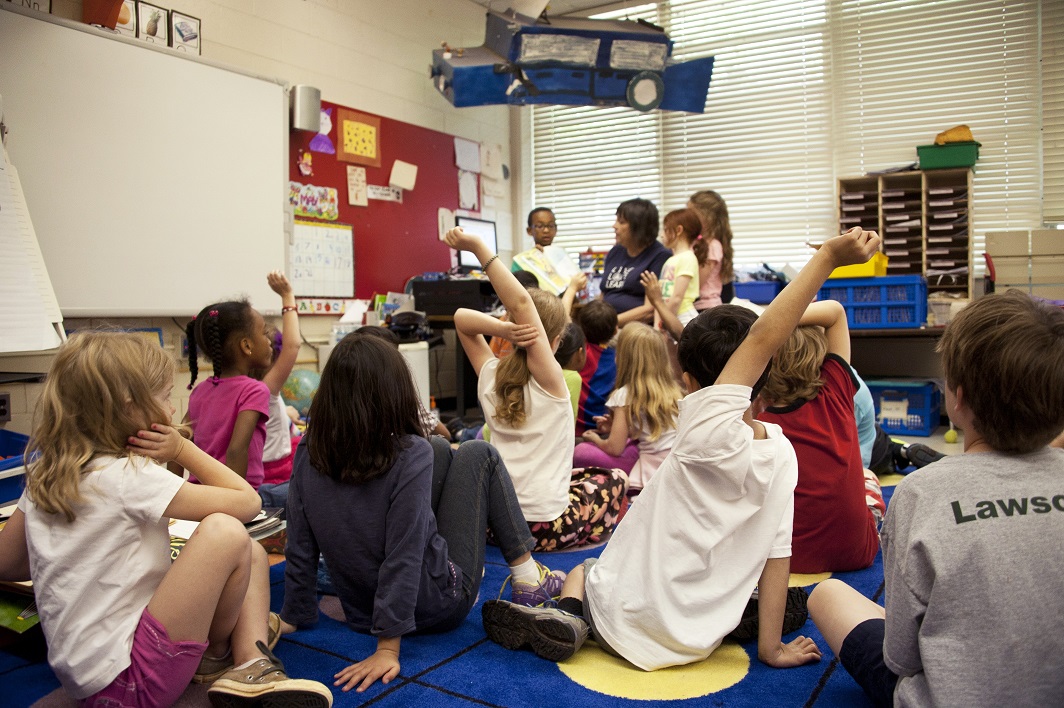
Navigating the sexual education conversation with your kids doesn’t have to be difficult. Sexual education is the teaching of issues concerning human sexuality. Topics typically covered in sex ed classes include emotional relations and responsibilities, contraceptives, sexual reproduction, and more.
Despite studies proving the immense value of sex ed, less than half of U.S. states require it in their curriculum. On top of that, nearly four in 10 millennials reported that sex education in grade school wasn’t helpful.
For these reasons and more, parents can’t rely on the gym teacher to educate their children on all things sex. So, guardians also need to be involved, and they’ll probably need to take a different approach than their parents did.
Keeping An Open Mind
In many schools across the United States, sex ed focuses on the negatives, such as unwanted pregnancy, sexually transmitted diseases, and rape. However, there’s also a pleasurable side of sex – that is very healthy and normal – that many educators shy away from discussing.
To counter this stereotype, primary schools in the Netherlands embrace all sides of sex during “Spring Fever.” Spring Fever is a week of comprehensive sex ed classes for ages four to eleven. Educators refer to it as sexuality education and cover topics like romantic crushes, self-image, gender stereotypes, sexual orientation, and contraceptive options.
There are no taboo topics. Children can also anonymously put questions in a box for educators to address aloud.
Despite the suspicion that embracing sex instead of instilling fear will cause irresponsible behavior, studies show that children in the Netherlands don’t have sex any earlier than kids in other European countries or the United States. On top of that, most young adults in the Netherlands between the ages of 12-25 said their first time was “wanted and fun,” while 66% of sexually active American teens say they wish they waited longer before having sex.
Balancing the Good and Bad Aspects of Sex
Unfortunately, there is a dangerous side to sex, and minors need protection. How you talk to your kids about this topic can make a huge difference in their lifelong development. Using words and methods that establish clear communication and a sense of safety helps your child set boundaries and feel secure coming to you with questions and issues.
Below you’ll find sound advice for navigating conversations about human sexuality and risky social situations with your children.
Teaching Kids How to Handle Outside Influence
- Give strong examples: Create a scenario and ask your child their reaction. For instance, “If a boy at school asked you to go under the slide and take off your clothes, what would you do?” On top of that, let your child know no one should touch them in a way that makes them uncomfortable, even family and friends, and they can always feel safe telling mom, dad, or another adult they trust about it.
- Have an open conversation about touch: Sexual touch can be confusing. Even if it is unwanted, it can still feel good physically. Therefore, avoid language or behavior that could evoke shame. Right off the bat, let your child know it’s never their fault. Make it clear that it’s never okay for anyone to touch them inappropriately (and define what that means). Their body belongs to them, and it’s essential they feel safe. If someone tries to touch them or does touch them, let your child know they can always come to you for love, support, and action against the perpetrator. Stress that even if the person threatens them for telling, your child can still go to you, and you’ll believe and protect them.
- Actions speak louder than words: If your child is uncomfortable hugging a particular adult or showing any affection, intervene. Find an alternative way for your child to say goodbye, for example, giving a high five or a fist bump. If the person insists on picking up or kissing your child despite resistance, defend your child’s boundaries. Your kid will feel secure knowing you have their back and that you trust their instincts.
Teaching Kids How to Treat Others
Your child could also be the one making others uncomfortable. Stopitnow.org encourages parents to teach children to respect themselves in the same way they respect classmates, siblings, cousins, and friends.
Prevention is always the best route. When you discuss inappropriate touching with your child, let them know that no one else wants to be touched in that way either. If it makes them uncomfortable, it will make other children uncomfortable too.
If you see your child and a playmate taking their clothes off or your child trying to touch another child, interject and carefully correct the behavior. Be sure never to shame your child and always use loving language.
Seeking Outside Help
Therapy can be an excellent option for children who have experienced sexual abuse or have trouble understanding boundaries. By involving a professional, you can find out what’s going on underneath the surface. Therapists use different techniques to build trust so that a child can feel safe sharing with an unbiased person.
Doing Your Best
Navigating the sexual education conversation with your kids doesn’t have to be difficult. Parents are not the only influences on their child’s development. Peers, teachers, other relatives, and adults all can play a role, not to mention drugs and alcohol. So go easy on yourself, accept that your children will face adversity, and let them know you’ll always provide a shoulder to lean on without judgment or anger.